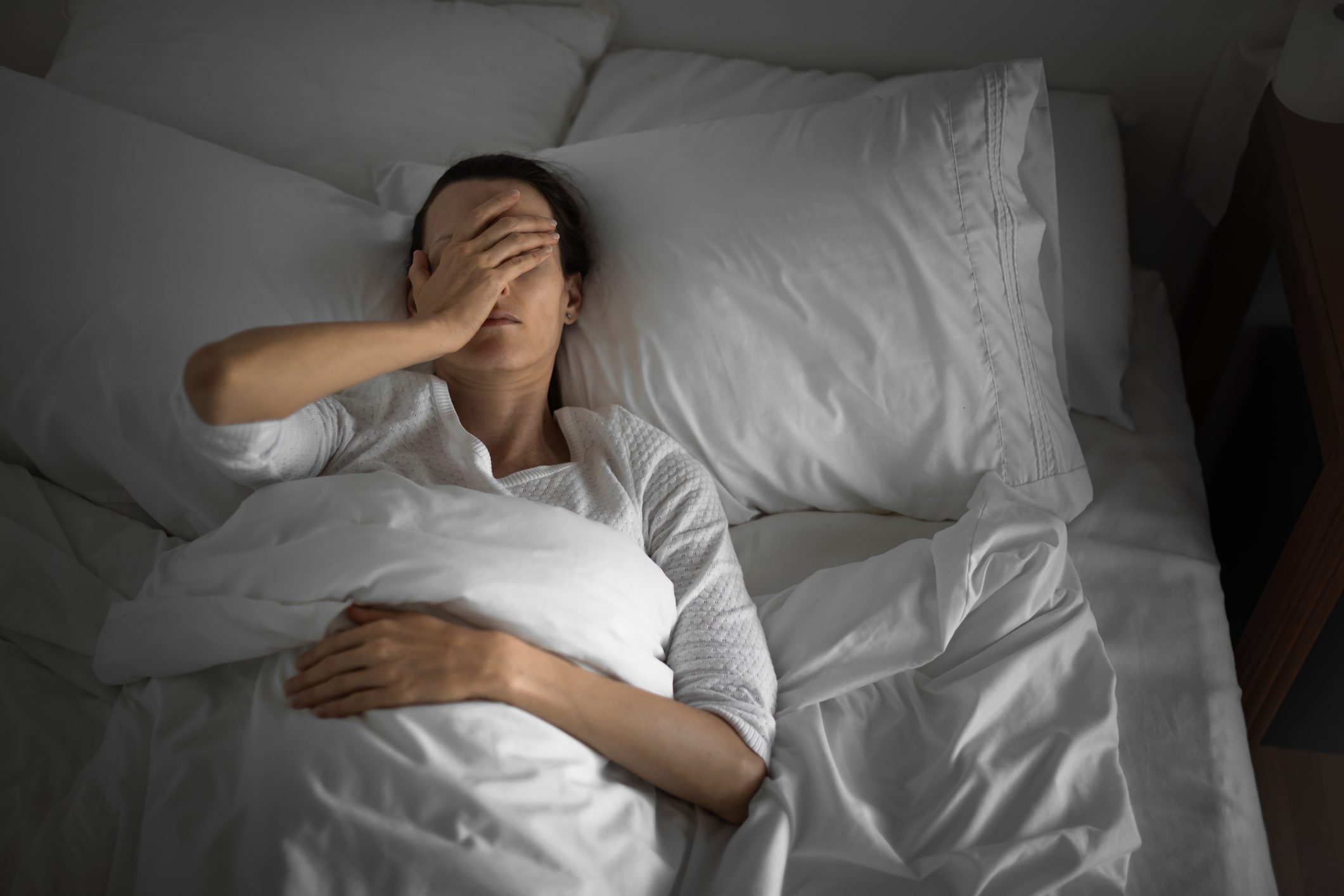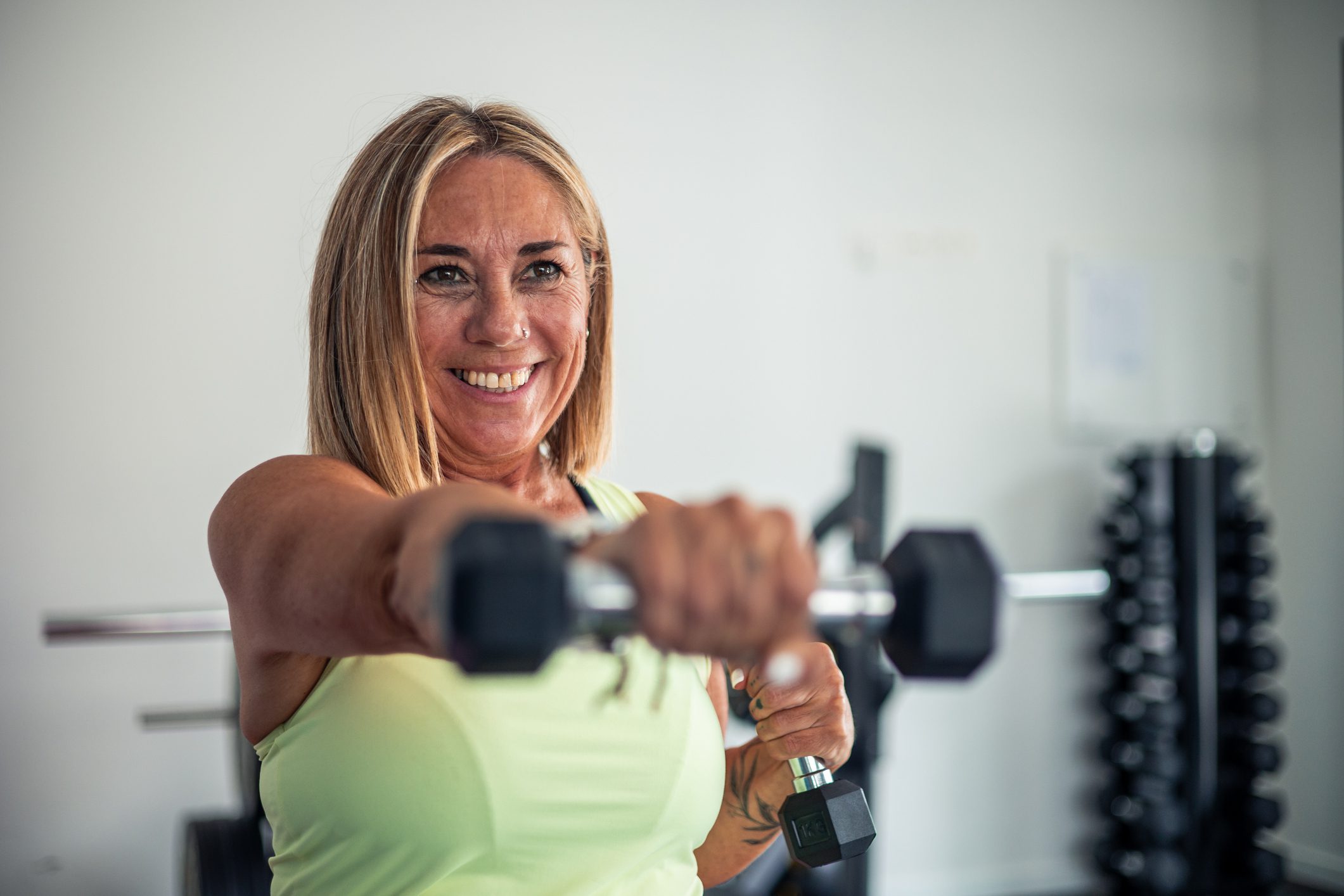
Published on Jan 23, 2021
Last modified on Mar 12, 2021
#TabooSmasher Spotlight: Omisade Burney-Scott, creator of The Black Girls’ Guide to Surviving Menopause
4 min read

Omisade Burney-Scott is a Black feminist, mother, healer, and 7th-generation native North Carolinian. Over the past 25 years, Omisade’s work has focused on the liberation of marginalized people through advocacy, philanthropy, and community organizing. She is the creator of The Black Girls’ Guide to Surviving Menopause, a multimedia project in which she curates and shares the stories and realities of Black women and femmes over 50. This project, which lives at the intersection of social justice, creative healing, and aging, uses the medium of storytelling to disrupt the erasure of Black women as they age.
Where are you in your hormonal health journey?
Well, I can think of a couple of ways I can answer that.
The first would be: I have not had a menstrual cycle since 2013. And I’ll be 54 in April. I haven’t had my hormones checked in a couple of years. But the last time I did have them checked, my OG/GYN showed me the spectrum of my fecundity and I was at the end. I was done, it was a wrap. So, I don’t suspect that has changed.
I tend not to think about my menopause journey in terms of my hormones or my hormonal levels. I think about my holistic health, what I need physically and emotionally, how things are going mentally, and how things are going with my relationships.
When you think about menopause, is there one phrase or word that comes to mind?
Portal.
I think menopause is a portal from one iteration of yourself to the next. I immediately think of a portal because menopause is a transformative experience. It’s transformed the way I relate to my body, which transforms my relationships, my work relationships, my friendships, and my romantic relationships — everything is transformed.
A person has a spectrum of experiences, right? And so, I know that I experienced menopause as a cis, hetero, Black woman. But that doesn’t mean that everyone will experience menopause in the same way or identify the same way I do. So, I know that each experience is unique.
“I think menopause is a portal from one iteration of yourself to the next.”
When you think back on what your body was experiencing throughout this transition, what kind of symptoms did you experience?
I definitely had physical manifestations. I use different language because I’m trying to normalize menopause and avoid making it seem like everybody’s sick. Because we’re not sick, we’re going through a challenge. So I don’t use the word “symptoms,” I use manifestations.
The way it manifested for me was hot flashes. I had pretty intense hot flashes when I was perimenopausal. I definitely had the vasomotor situation going down! I was like, “Oh, this is impressive.” And I remember observing my mother and realizing the differences between how people were experiencing hot flashes.
I think a lingering manifestation is insomnia. Insomnia is one of the things that definitely still walks with me. And I’m not sure if it is related to my hormones or, you know, just living in this world. There’s just so much information and chatter always coming at you. It’s hard for me to turn my brain off. I’m also a person who is a lucid dreamer and makes checklists in my brain. I have journals everywhere in the house and make little checklists telling me, “you need to do this, this, this, and this.”
I’m really curious about rest and sleep and want to be in a deeper relationship with my rest. I also recognize that a lot of the ways I view rest is cultural. I was raised in social justice work and people say, “I’ll rest when I’m dead.” That’s not a thing you should tell a young person who’s learning how to advocate and organize.
When my eldest son was home for the holidays, I talked to him about this, because he was working the whole time (he’ll be 29 soon). I said to him, “You’ve been here a week and you have not rested.” He responded, “Of course I have!” So, people have their own, individual relationships to rest.
Somebody asked me, “what is a menopause hack?” We’re always talking about different aging “hacks” as if there is one. There is not one. This is your body, and you have to take care of it.
As you get older, your body will become even more clear about what that means.
“And I often think about softness as fragile or unappealing as opposed to softness being real, comfortable, and actually a different way of strength.”
As you age, how has your perception of your own body shifted?
It’s interesting…your body just works differently as you age. Everything looks and feels different. Everyone in my family grays prematurely. I got my first gray hair when I was 14, but it was just a hair. And then it became a little skunk streak situation, so I dyed it. I had no idea how gray my hair was until I was 46. And then it was really gray.
Also, everything is softer. I often think about softness as fragile or unappealing, as opposed to softness being real, being comfortable, and being, actually, a different way of strength. This softness carried me throughout all of 2020. I’m here and we’re having this conversation right now. So I’m grateful for this body, even when I have these internal dialogues that are not so nice, in my opinion.
These are the things I think about and talk about with my OB/GYN, my primary care doctor, and my therapist. I want everybody to be team Omi! To me, we all need to be on the same page. I need us all to ask the question, “what does Omisade need, as a whole person, at the age of 54.” I’m very assertive in that way around my care with the people who are supposed to be my support system.
Do you have an anecdote or reflection that shows another side of menopause, beyond what we’re conditioned to “fear” as women?
I will say this one thing: my cousin and I call ourselves, “The Sisterhood of the Pissy Panties.”
As I get older, it’s hard for me to get inside the house with my groceries without feeling like I’m gonna pee on myself. I can be fine the entire time I’m in the grocery store and the entire ride home from the grocery store. As soon as I pull into the driveway and pull out my keys, my bladder is like, “RED ALERT. YOU GOT TO GO, RIGHT NOW.” Also, if I sneeze or if I laugh too hard…this is another physical manifestation of the pelvic floor.
So, we call ourselves the Sisterhood of the Pissy Panties as a running joke. And we invite people into the sisterhood!
What helped you throughout your hormonal health journey (treatment, product, mantra, routine, friends, etc.)?
After I had my last child at 41, I started to notice the night sweats and hot flashes. For the hot flashes, I was always prepared to come out of my clothes at night. Be prepared to come out of your clothes and don’t sleep in heavy clothes! I can’t sleep in anything with sleeves. I wear underwear to bed every night, I’m like, “I gotta be free!” I keep water beside my bed to drink throughout the night if I get hot or thirsty.
I haven’t navigated any issues around vaginal dryness. That’s not my journey at this point. I don’t know if that’s going to become an issue for me, but I’m fully invested in my own pleasure. Whether it’s self-pleasure or pleasure with a partner, your lover, or your spouse, lubrication is really important.
I do use mustard as a remedy for Charley horses when I randomly get cramps. I know that I’m actually not drinking enough water, so paying attention to hydration is important.
“You need to learn how to ask for support. You need to be open to your own frailty as a human person.”
Is there anything you wish your younger self would have known?
So many things. My mother passed away when I was 31. If I could give myself a heads up in my late 20s or early 30s around this journey of womanhood, I would definitely encourage myself to be more loving to myself. To not be so hard on myself for the mistakes that I inevitably will make. It’s important for you to make mistakes because you need to figure out what you don’t already know.
You need to learn how to ask for support. You need to be open to your own frailty as a human person. As a younger person, there were ways I showed up in the world that were performative. I wanted to be perceived as being knowledgeable about the work I was doing in social justice. I wanted to be perceived as dependable, reliable, and knowledgeable. I wanted people to say, “She got it! She’s on point!” This led me to not always be honest when I didn’t know something, when I needed help, or when I was tired. So, I would certainly time travel back, sit with myself, and say, “Listen, don’t sweat that, it’s really not a big deal. It’s really, really okay. And you’re doing a really good job. And you’re an amazing mom and your friends love you. So chill out.”
I would definitely have the “chill out” conversation with myself and around the body changes. I’d want to give myself a heads up before I became a mom in my early 20s. I’d tell myself, “You’re gonna be amazed and horrified. Rock with it. Rock with it. And you’re not the only person who has ever been amazed by what their body can do and also horrified.”
I wouldn’t just give this kind of euphemistic message of, “everything is peachy keen!” I would be very specific with myself and lay out what to anticipate and what things I can do.
I actually do that with some of the younger people who interact with Black Girl’s Guide when we have these intergenerational conversations. We’re all still learning about ourselves. It doesn’t matter to me if you are in your 20s, your 30s, your 50s, or your 60s. When I ask questions about our bodies, all people, intergenerationally, are still grappling with things. It’s important for us to have these accessible, transparent conversations with candor and humor.


